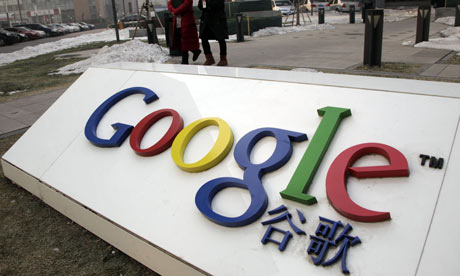
People’s Daily, the ruling Communist Party’s mouthpiece, on Monday posted a commentary on its Twitter and Facebook accounts that welcomes US internet giant Google back to mainland China as long as it complies with the relevant laws. The commentary had previously been published by its sister tabloid newspaper Global Times over the weekend.
Google is working on a filtered search engine in China eight years after its previous departure from the country, although approval will be down to Chinese regulators, a person familiar with the plans told the South China Morning Post earlier.
Google’s plan for a filtered search app in China was first reported by The Intercept, while The Information reported Google also had plans for a Toutiao-like news aggregator for the country. Meanwhile Bloomberg reported Google is also in talks with Tencent and others on a potential cloud services business in China.
The commentary says that Google’s decision to exit the Chinese market was a “huge blunder which resulted in the company missing golden chances in the mainland’s internet development”. The commentary states that “Google is welcome to return to the mainland, but it’s a prerequisite that it must comply with the requirements of the law”.
The US-based search engine giant chose to leave China’s market in 2010, shutting down major services including its search engine, Gmail and Google Maps, when the company said it discovered a cyberattack from China and found Gmail accounts of some Chinese human-rights activists had been hacked. The US company’s change of approach in dealing with China’s rigid censorship laws highlights the importance of the Chinese market to US tech giants.
However, the conditional welcome from state media doesn’t necessarily mean regulators will nod through Google’s re-entry into China.
“It’s impossible to predict whether, even if Google does roll out a censored search engine, this will be enough for China to welcome them back into the country,” said Paul Haswell, a Hong-Kong based partner with law firm Pinsent Masons, which has expertise in technology issues. “China is exceptionally fickle when it comes to online content and tools, and the government will want to ensure that it can exercise complete control over what Google users can see or access.”
The commentary went on to say that Google has become a “politicised brand” and this is “undoubtedly a tragedy for this well-known multinational company”. “During Google’s absence over the past eight years, the internet landscape in the mainland has changed rapidly and the number of mobile internet users has more than doubled, increasing from 303 million in 2010 to 753 million today,” the commentary says.
Notwithstanding the Global Times commentary, Chinese media outlets Caixin and the Securities Daily have quoted anonymous regulator sources as saying that Chinese regulators have denied the possibility of Google’s core search engine business returning to China.
The Global Times commentary also says that while China is committed to opening up to the outside world, “China will adhere to the implementation of its laws on internet governance, ensuring activities in cyberspace are safe for society.”
Haswell from Pinsent Masons said it was ironic that “the majority of smartphones used in China are now using operating systems based on Google technology without any issue”. However, “when it comes to the population’s access to information, Google will only be allowed back into China if it can ensure content is controlled and policed in the same manner as existing Chinese web-based companies.”
Meanwhile, Robin Li Yanhong, the chairman and chief executive of Baidu, expects the Chinese online search giant to beat Google again should the US technology giant make its return to the world’s second-largest economy.
“If Google re-enters the market, it works in our favour to ‘PK’ with real swords and spears and win one more time,” Li said in a post on his WeChat account on Tuesday that was verified by Baidu. PK is the acronym for “player kill”, a term most often used in multiplayer online role-playing games, that suggests the death of another gamer’s avatar in a virtual world.
























